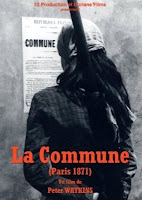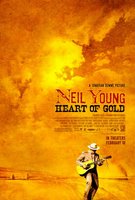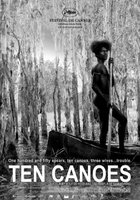Completely by accident, it would appear that this list could be alternately titled, "The Best Undiscovered Films of 2006".
 Bamako (Abderrahmane Sissako, 2006)
Bamako (Abderrahmane Sissako, 2006)One of the ballsiest of all home-grown African movies that I've seen (and like most Americans, I haven't seen nearly enough): the IMF and World Bank are subjected to a mock trial for crimes committed against Africa, keeping that continent locked in poverty and underdevelopment. Meanwhile, life in the titular city (the capital of Mali) goes on unperturbed, largely in the person of a bar singer and her unemployed husband. I'm not entire that I understand how the two plots are supposed to fit together, but there's a weird electricity in the trial scenes that makes the film a fascinating watch nonetheless.
 La commune (Paris, 1871) (Peter Watkins, 2000)
La commune (Paris, 1871) (Peter Watkins, 2000)The hook is absolutely bonkers: what would it had have been like if there were television news crews during the two-month life of the Paris Commune? And from there, Watkins's history play springs to life, a tale not just of competing sides in a political struggle, but of the much more contemporary issue of who gets to control information, and how opposing views are disseminated (the idea grew out of the filmmaker's disgust that the French educational system had conveniently ignored the Commune in its history teaching). It's incredibly fucking long, though - a bit shy of six hours - and I really can't say that it needs even half of that running time to make the same points. But still, a more passionately leftist discussion of politics and history you'll not see.
 Day Night Day Night (Julia Loktev, 2006)
Day Night Day Night (Julia Loktev, 2006)The story of a pretty 19-year-old girl of uncertain ethnic background and no given name (played magnificently by first-timer Luisa Williams), with a horrible job to do. We never learn the motivation for her mission, or much else, for that matter: the film is nothing but a patient waiting game, watching as this young woman prepares, over the course of a couple days, to do what she must, and it's haunting and disturbing - especially in the scenes where she performs the most banal acts, like grabbing food from a street cart. Its lack of political comment makes it a hard sell for 21st Century America, but politics would only sully a film that's equal parts structural experiment and excellent character drama.
 Hunger Steve McQueen, 2008)
Hunger Steve McQueen, 2008)Hey everybody, let's watch a man starve to death! Which isn't the only reason to see McQueen's unnervingly self-assured debut, but with Michael Fassbender playing the historical Irish hunger-striker Bobby Sands, the film's depiction of what happens to the human body in that situation is pretty much the definition of "visceral", and if you are not affected by it, then you are dead. The other reason (not that there are just two) is that McQueen's staging of the narrative is both entirely counter-intuitive and absolutely gripping: you will believe that a shot of two men sitting at a table talking, for ten uninterrupted minutes, can be as thrilling and intense as any horror movie. (Reviewed here)
 In the Cut (Jane Campion, 2003)
In the Cut (Jane Campion, 2003)It's not hard to see why the film bombed: it was pitched as a sexy thriller with Meg Ryan going full-frontal and hunting serial killers. Which means that the kind of people who went to see it were largely the exact people who weren't going to be interested in a moody character drama about female sexual desire talking a walk on the dark side. And as for the people who ought to have been watching Campion's back, cheering on her weird but successful post-genre experiment, well there aren't even enough of us to get Bright Star a damn Blu-Ray release. My hope is that this one is ripe for the same kind of "oh, that's what you meant!" re-evaluation that seems to have mostly redeemed the thematically similar Eyes Wide Shut; step one is to get people to watch it, and I've just done what I could to make that happen. (Reviewed here)
 Moon (Duncan Jones, 2009)
Moon (Duncan Jones, 2009)Brainy science-fiction doesn't have an easy time of it: it hardly ever gets made, and when it does you have critics nitpicking at it, and audiences staying far, far away, fearing like Hell itself any movie that has spaceships and not explosions. (viz. Sodebergh's Solaris remake, Boyle's Sunshine). The latest casualty: Jones's bright and sure debut feature, a chamber drama set on an isolated lunar factory, with Sam Rockwell giving his best performance yet as both sides of an uncomfortably probing discussion of what exactly "personality" and "humanity" are in a world of high-tech computers and automation, and an eerily expressive computer voiced by Kevin Spacey like HAL-9000's snotty kid brother. (Reviewed here)
 Neil Young: Heart of Gold (Jonathan Demme, 2006)
Neil Young: Heart of Gold (Jonathan Demme, 2006)"You know what happens to old people? THEY DIE." Okay, so those words are never spoken in Demme's beautifully poetic concert film - probably the best work produced in that semi-dubious genre since the same director gave the Talking Heads cinematic immortality in Stop Making Sense - but the sentiment is never very far away. 40 years and more after he was the hot new kid, Young's stories about the legends who taught him all he knows all have the same sad, unspoken conclusion: those men aren't around any longer. And Young certainly seems to understand that he's not going to be around much longer himself, to judge from the peaceful, heartrending look on his face, exquisitely captured by Ellen Kuras's top-notch cinematography. Oh, there are also musical performances. (Reviewed here)
 Ten Canoes (Rolf de Heer and Peter Djigirr, 2006)
Ten Canoes (Rolf de Heer and Peter Djigirr, 2006)Don't you hate when a movie falls apart at the end? "Falls apart" is too strong a word - what happens is that a movie that has steadfastly avoided making its subjects the stuff of anthropological study unexpectedly and wholeheartedly does just that for the whole last act - but whatever, the great bulk of the movie is still absolutely marvelous: a triple-layered story about storytelling and social mores, with a pleasantly ironic narrator, played by the legendary David Gulpilil, taking us back step by step into the pre-white history of Australia (this was the first film ever made in an indigenous Australian language), for a story about a man who tells his brother a parable, and it all gets pretty complex although the directors make sure that it's absolutely easy to follow by shooting each layer in a different style. A gorgeous movie that gives us a peek at a culture rarely well-served by cinema; what else can you ask for? (Reviewed here)
 Wolf Creek (Greg Mclean, 2005)
Wolf Creek (Greg Mclean, 2005)Proof, if you want it, that even the most vile new subgenre of the '00s - that being torture porn - can produce a work of legitimate artistic merit. That it is, in my head, tied up with the rancid Saw movies means that it never had a prayer at hitting the top 100, but that's my fault and not the movie's. For Mclean is more than your average horror director, tying up pretty girls and splattering them with blood in a desultory, mechanical fashion: he's anxious to really grind our face in the sheer unmitigated nastiness of what he's about, leaving little chance that the audience is going to be in any way titillated, feeling rather too much like we've just been hit in the face with a shovel. Makes the cosmic arbitrariness endemic to most horror feel like a virtue, and not just a generic trope.
 Woman on the Beach (Hong Sang-Soo, 2006)
Woman on the Beach (Hong Sang-Soo, 2006)Every time I see a film by Hong - three of them, now - I have the exact same mixed reaction; equal parts wide-eyed amazement at the sneaky, playful way that he analyzes gender roles and sexual competition, and a certain frustration at how his characters are thematic placeholders more than they are reasonable representations of human psychology (or more to the point: I'm frustrated that Hong doesn't seem to be aware that this is what he's doing). Still, his is one of the most distinctive voices and visual sensibilities coming out of South Korea right now - a rich and fascinating national cinema if ever the '00s produced one - and largely for its intriguing meta-cinematic characteristics (the male lead is a film director), and the absolutely successful way he echoes images throughout the film, I'd give Woman on the Beach the nod for being the best one to start with.
Finally, a special nod to Anne Aghion's My Neighbor, My Killer: to the best of my knowledge, it hasn't been given a legitimate release anywhere in the world, but is still making the festival rounds 10 months after its premiere. But at some point you might get a chance to see this smart, unusual documentary about the social fallout of the 1994 Rwandan genocide (rather than about the genocide itself), and I'd urge you to take that chance: of course it's not fun, but it's one of the most pointed stories about African self-determination you will ever see in film form, even though it doesn't ignore the fact that it was made by a white Frenchwoman. (Reviewed here)
So glad to see My Neighbor, My Killer here - it actually did play a theater in Harlem and scored a NY Times review on that basis in January, so I think we can safely construe it as a 2010 release when end-of-year awards time comes up.... in about 10½ months.
ReplyDeleteGlad to see Wolf Creek getting a mention. In a strange way, it was what Funny Games wished it could be.
ReplyDeleteI loved Luisa Williams in the short film "Anna" (A. G. Iñárritu) from Chacun son cinéma. And Moon rocked!
ReplyDelete